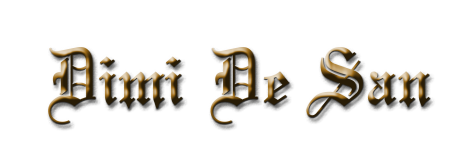Do Vampires have their own language?
The ''Vampire'' Language

Do vampires have their own language?
Like any mythological creature worthy of persisting in the collective imagination, vampires have a very close bond with language. But, beyond that, is there a language of vampires, a language of their own that identifies them?
The answer to this question has multiple answers, none completely satisfactory.
Although the cinema has endowed vampires with their own language, in general it is used as a resource to give vampires a certain sense of depth, of antiquity. In most cases, the harsh language we hear vampires babble in movies is none other than Esperanto. In fact, there is a vampire movie spoken entirely in Esperanto: Incubus (Inkubo) from 1965.
There are no examples or hints of a vampire language in the classic tales of the genre, much less in the novel and poetry.
They are the legend and the myth, sometimes liquefied in the pulp story, who come to the rescue of this theoretical language of the vampires.
Greek myths describe how the Brucolacos, uniquely fearsome vampires, communicated with each other through articulate moans, the rate of which varied depending on location and distance. It is even claimed that the Brucolacos have long conversations underground, from the safety of their coffins.
The philosopher and astronomer Epirus (2nd century BC) reveals a binary construction in the language of the Brucolacos: just two sounds that modify their meaning depending on the space of silence that is interposed between them. In this context, the Greek vampires already used a communication system as similar, economical and efficient as the Morse code.
The legends of the Middle Ages, on the other hand, never allude to a vampire language, even to systematic babbling, simply because vampires of that period were neatly idiotic. Indeed, in the Middle Ages, vampires were not considered intelligent creatures or endowed with a certain reasoning in an embryonic, primordial state, but rather automatons from beyond the grave, abominable grotesques who had completely forgotten their human condition.
In the absence of a vampiric proto-language in the Middle Ages there is an underlying philosophical concept that is worth commenting on: We are human from the moment we communicate, whether through signs, babbling or signs. Humanity exists only when language exists; and vampires, at least in the medieval conception, lack all humanity, consequently they lack language.
We must take a time leap and go around medieval darkness to meet again with hints of the language of the vampires.The Greek vampires (Vrykolakes), says the legend, entered the regions at night howling a word that served as a warning to the restrained: ἀναιμόσαρκος, which means “flesh without blood,” that is, bled flesh. The scream was preceded by a fierce, inhuman howl; that served as a warning to all the unwary who roamed the streets, as the Vrykolakes were afraid of encountering human beings.The Kathakan vampires, originally from Crete, repeated over and over the same word when they vomited their perfidious digestive juices on their victims: ἀποφλογίζω, which means: “burn yourself!”, A charm that reinforced the sulfuric acid with which they dissolved the meat of their victims.
Pulp literature strongly contributed to the construction of a vampire language. Robert Bloch and H.P. Lovecraft, two notable examples, conceived an obscure vampire language in the forbidden book: De Vermis Mysteriis, also known as: The Mysteries of the Worm (see: Reconstructing the “De Vermis Mysteriis”)
So far we only have a few isolated terms from the vampire language. We must enter the esoteric plane to group something more substantial, more specifically in medieval grimoires.

